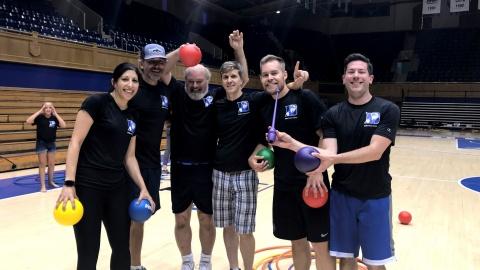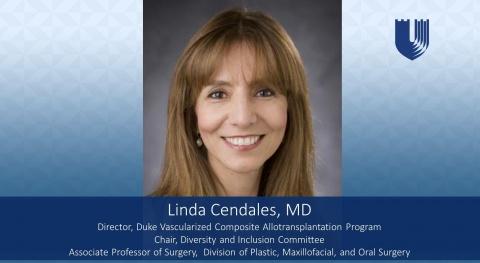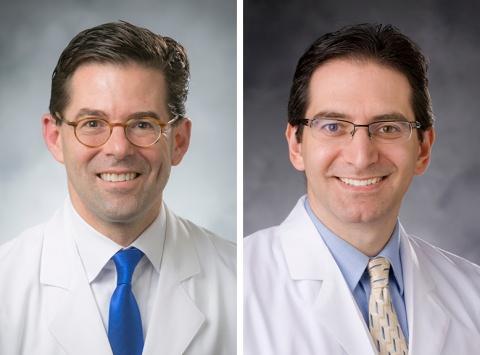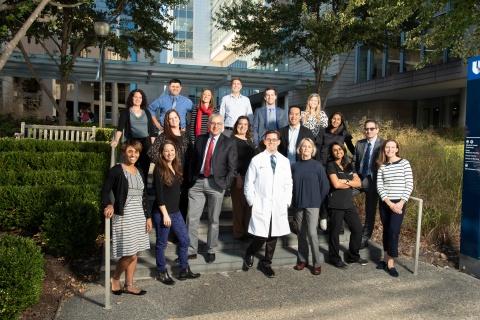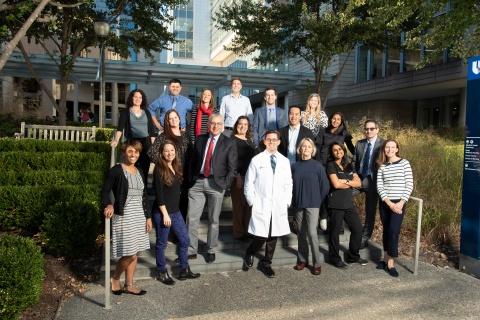Divide and Conquer: Responding to COVID-19 with Residency Platoons
To care for patients, healthcare providers must stay healthy themselves. During the initial weeks of the COVID-19 pandemic, Duke’s surgical residency programs faced a serious challenge: how to keep their residents safe, healthy, and available, while still meeting the needs of patients in a rapidly changing global landscape.
Making Leaders: A Formal Soft Skills Curriculum for the Duke Plastic Surgery Residency Program
Recently, Duke’s Plastic and Reconstructive Surgery Residency Program has pioneered a formal “soft skills” curriculum that aggressively expands professional development and training that is broadly applicable outside the OR and clinic.
Duke Surgery Ranks Third Nationwide in NIH Funding
The Duke Department of Surgery now ranks third among surgery departments nationwide in National Institutes of Health (NIH) funding received in 2019 according to the newly released Blue Ridge rankings. Duke Surgery has continued to rank in the top five nationally over the past 30 years, demonstrating the department’s long-standing commitment to investigate the impact of disease on patient health. With a diverse portfolio, including 78.7% of funding from the NIH, Duke Surgery faculty and staff perform a wide variety of research to improve the human condition.
Dr. Linda Cendales Elected to the OPTN Board of Directors
Congratulations to Linda Cendales, MD, on her election to the Organ Procurement and Transplantation Network (OPTN) Board of Directors as an at-large representative in surgery.
Dr. Jeffrey Marcus and Dr. Alexander Allori Co-Author Most Downloaded Articles in Cleft Palate–Craniofacial Journal
Dr. Jeffrey Marcus, Professor and Chief, Division of Plastic, Maxillofacial, and Oral Surgery, and Dr. Alexander Allori, Assistant Professor of Surgery, have co-authored two of the top 10 most downloaded articles of 2019 in the Cleft Palate–Craniofacial Journal. This achievement is a testament to their world-renowned expertise and leadership in cleft lip/palate care. The two articles focus on diagnostic coding and the history of classifying cleft lip/cleft palate over the past 100 years.
Duke Cleft and Craniofacial Team Approved as Cross-Specialty by ACPA
Congratulations to the Duke Cleft and Craniofacial Team! They received notice that the American Cleft Palate and Craniofacial Association (ACPA) Commission on Approval of Teams voted to fully approve the Duke Team as a “Cross-Specialty Team” for a period of five years beginning January 1, 2020. The ACPA only approves teams that meet certain standards for comprehensive and coordinated cleft and craniofacial care. Congratulations to everyone on the team who has contributed every single day to make this possible.
Duke Health Ranks 8th Nationally in Organ Transplant Volume
In 2019, the Duke heart, lung, liver, and kidney transplant programs experienced unprecedented volume growth: more than 20% for most programs. With 521 total transplants performed in 2019, Duke Health now ranks 8th among U.S. transplant programs.
Duke Transplant Center Funding Opportunity
The Duke Transplant Center (DTC) of the Duke University School of Medicine aims to promote cross-disciplinary clinical, translational, and basic research with the ultimate goal of optimizing transplant organ longevity and improving quality of life of transplant recipients. This is the inaugural annual call from the DTC for proposals for pilot and feasibility studies.
Duke Abstracts Accepted at American Cleft Palate-Craniofacial Association Annual Meeting
The Duke Cleft and Craniofacial Center recently had ten abstracts accepted for podium presentations at the American Cleft Palate-Craniofacial Association Annual Meeting to be held March 31–April 4, 2020. This number shatters any prior single year performance for the Duke team.
Duke Cleft and Craniofacial Center Hosts First Annual Smile Stand
The Duke Cleft and Craniofacial Center will be holding its first annual Smile Stand this year to raise support and celebrate the cleft and craniofacial community. The Duke Cleft and Craniofacial Team is a multidisciplinary team led by Dr. Jeffrey Marcus and Dr. Alexander Allori dedicated to the care of children with cleft and craniofacial conditions. Please join the team for their inaugural event.

